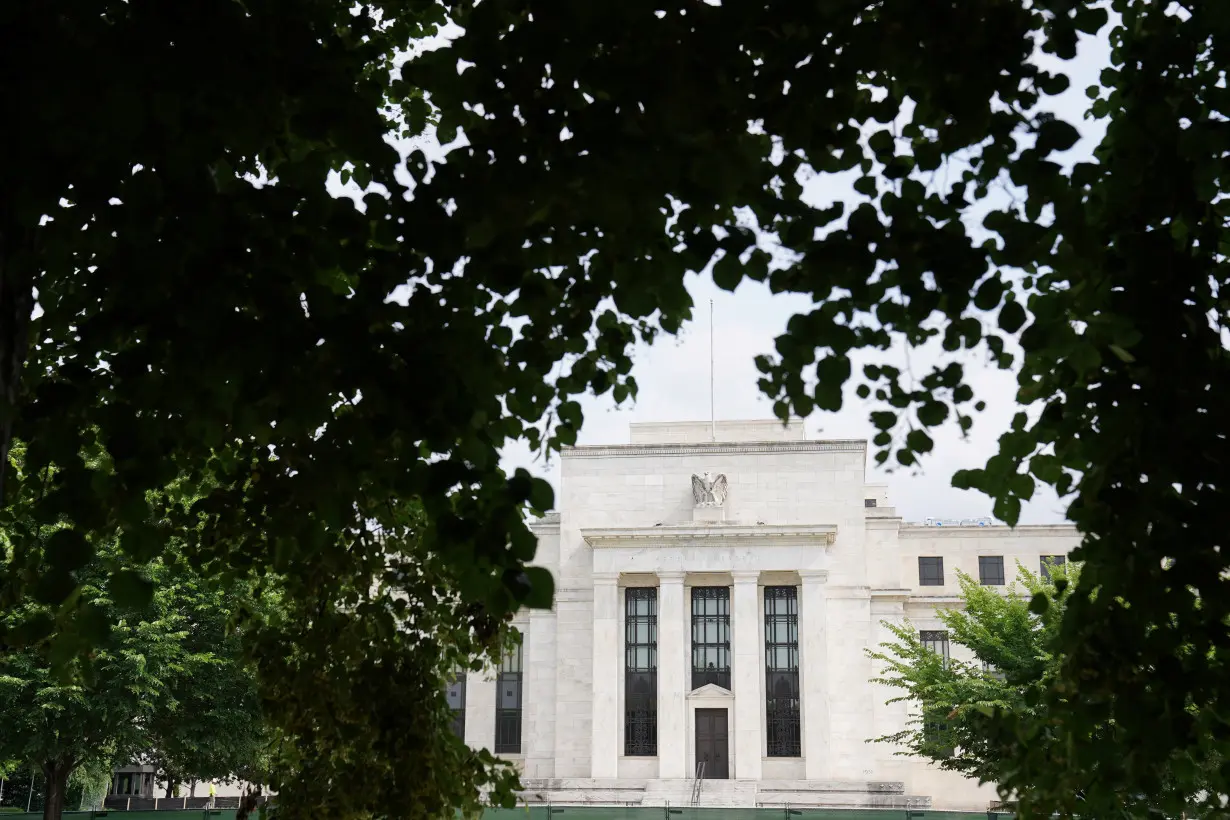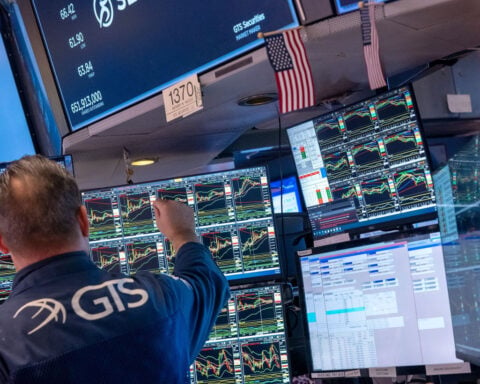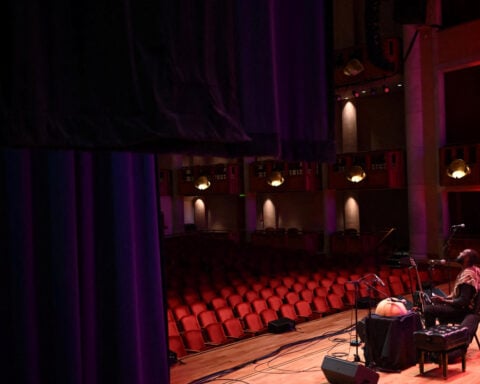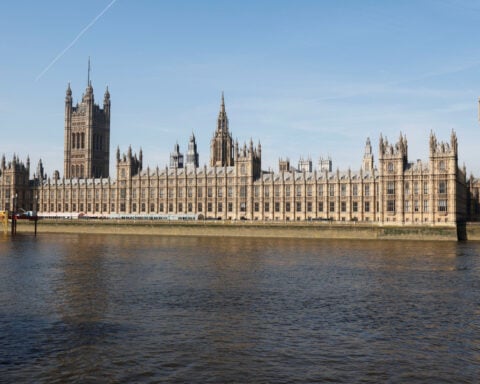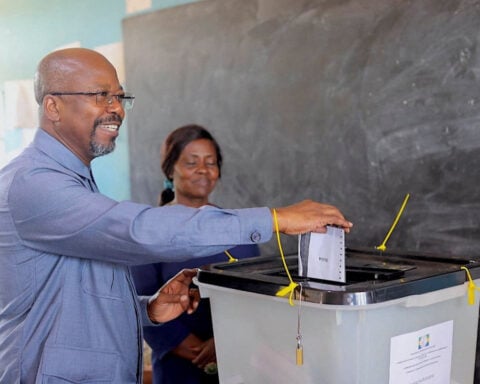By Ann Saphir
(Reuters) - This past summer, leads for Brian Brown's landscaping business near Lake Tahoe were drying up.
“We’d put together bids, call clients, and they were like, 'well, we’re going to think about it,'" said Brown, whose typical customer owns luxury property in the California resort area. "Most of our clientele are not the kind of people that ‘think about it.'"
As the months ticked by, he got increasingly nervous about the spending pullback, which left him with a thin cash cushion going into the winter off-season and a smaller-than-usual book of business for next summer. He is cutting bonuses and considering laying off one of his six full-time staff.
Then in September, the Federal Reserve eased policy and signaled borrowing costs were heading lower.
"That really allowed me to exhale a little bit," Brown said.
He now expects that cheaper borrowing costs will let him refinance a clutch of loans that currently cost him $20,000 a month, and use the extra cash flow to build out a shop on one of his commercial yards.
By springtime, he hopes, lower interest rates and the uncertainty of the U.S. presidential election in the rearview mirror will also mean renewed demand for tree-trimming and other services, allowing him to make his usual 50 or so seasonal hires.
Overall, he said, "we're cautiously optimistic."
As the Fed shifts from the restrictive policy it imposed to quell inflation, Brown's change in sentiment is echoed by firms across the country.
Surveys by Fed banks also show that businesses have become more optimistic after a long decline as the Fed was raising rates. And the Fed's most recent Beige Book, which summarizes business trends in all 12 districts and found lackluster conditions in most of them, also noted some improvement in the outlook due to the decline in interest rates.
LENDER OPTIMISM
Banks see it too.
"I think we're setting ourselves up for kind of a rebound in loan demands and getting those animal spirits ready to start making investments again," said Citizens Financial Group CEO Bruce Van Saun. "Having rates come down will be helpful."
Banks surveyed by the Dallas Fed immediately after the Fed's rate cut reported that loans continued to decline, but they also turned sharply more bullish on the outlook.
A larger share of lenders expect business activity and demand for loans to rise over the next six months than at any time since the Fed began its now-concluded rate-hike campaign, back in 2022. And though the survey is confined to Texas banks, the Dallas Fed's banking conditions survey often presages national trends.
Fed policymakers next meet to set rates on Nov. 6-7 - the two days immediately after the election - and again on Dec. 17-18. Their latest projections show they are closely divided on whether they'll end up cutting the policy rate at both meetings or just one.
Landscaper Brown says he will wait until rates drop at least another half of a percentage point before seeking refinancing.
Most analysts currently believe the Fed is likely to deliver that by year-end, though an unexpected surge in retail sales and a pickup in payroll growth in September have financial markets betting it could take a little longer.
'GLIDE PATH DOWN'
MassageLuxe franchisee Tracy Thomas says she's counting on the Fed's rate cuts to fast-track her expansion after opening her first spa last December in Fort Mill, South Carolina, with a 10.25% Small Business Administration loan.
She now has 400 members paying anywhere from $75 to $149 a month; this month she added two massage therapists to her current roster of nine, and hired a sixth front desk staffer. She plans to acquire a second franchise next year, sooner than she had thought because borrowing will be cheaper.
"A lower rate would help us manage our costs ... and free up more capital" for further growth, she said.
And it's not just businesses planning to borrow that say the Fed's pivot to rate cuts makes for a rosier outlook.
Sabrina Fuller, who runs a house-painting business in Athens, Georgia, with her daughter Holly, says people may feel better about the economy now that the Fed is comfortable enough on the inflation outlook to ease up on rates.
"If it loosens up money in folks’ pocketbooks, fantastic," she said, though she doesn't expect to see much of a boost until sometime next year. "When people start feeling good about things, they want to spend money on projects."
Despite uncertainty in the short-term, nearly all Fed policymakers say they support further reductions in short-term borrowing costs to account for cooling inflation and prevent harm to the labor market, and most see the policy rate, now in the 4.75%-5% range, to end next year between 3% and 3.5%.
"It is not so much that the rates have come down to a certain threshold level. It's less about that than it is that we're now pretty certain to be on a glide path down of interest rates," Zach Wasserman, CFO of Huntington Bank, said earlier this month. "Now that the market has a much stronger conviction of rates coming down, we're seeing decisions get across the wire...and deals culminate now in much higher frequencies."
(Reporting by Ann Saphir; additional reporting by Saeed Azhar and Nupur Anand; Editing by Dan Burns and Anna Driver)

 Trump has begun another trade war. Here's a timeline of how we got here
Trump has begun another trade war. Here's a timeline of how we got here
 Canada's leader laments lost friendship with US in town that sheltered stranded Americans after 9/11
Canada's leader laments lost friendship with US in town that sheltered stranded Americans after 9/11
 Chinese EV giant BYD's fourth-quarter profit leaps 73%
Chinese EV giant BYD's fourth-quarter profit leaps 73%
 You're an American in another land? Prepare to talk about the why and how of Trump 2.0
You're an American in another land? Prepare to talk about the why and how of Trump 2.0
 Chalk talk: Star power, top teams and No. 5 seeds headline the women's March Madness Sweet 16
Chalk talk: Star power, top teams and No. 5 seeds headline the women's March Madness Sweet 16
 Purdue returns to Sweet 16 with 76-62 win over McNeese in March Madness
Purdue returns to Sweet 16 with 76-62 win over McNeese in March Madness
